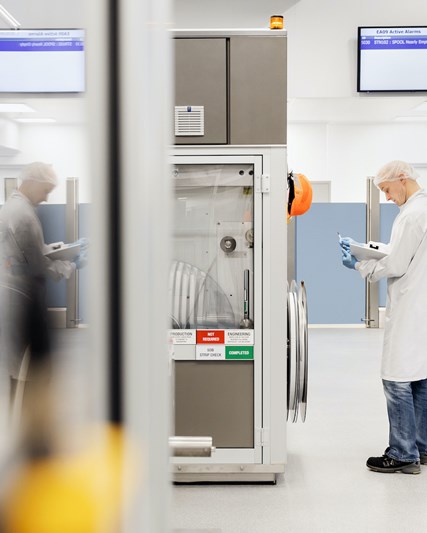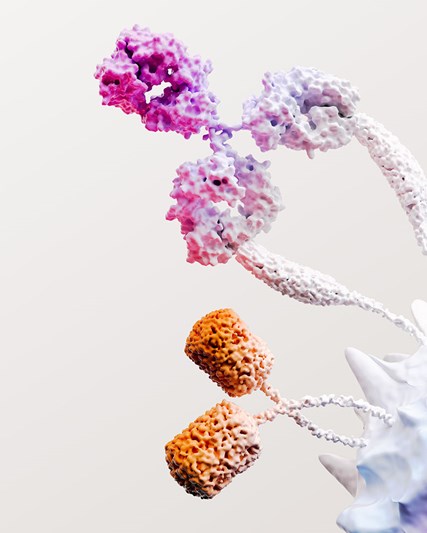Issued: London, UK
For media and investors only
EAGLE-1 phase III data show potential for gepotidacin as a new oral treatment option for uncomplicated urogenital gonorrhoea (GC) amid growing resistance to existing treatments
- Gepotidacin achieved a 92.6% microbiological success rate and was non-inferior to the leading combination treatment
- EAGLE-1 is the third positive pivotal trial for gepotidacin, a potential first-in-class oral antibiotic as part of GSK’s industry-leading infectious diseases portfolio
- Results will be presented at European Society of Clinical Microbiology and Infectious Diseases (ESCMID) Global
GSK plc (LSE/NYSE: GSK) today announced positive results from the pivotal EAGLE-1 phase III trial for gepotidacin, a potential first-in-class oral antibiotic with a novel mechanism of action for uncomplicated urogenital gonorrhoea (GC) in adolescents and adults. These results will be presented on 30 April 2024 at the European Society of Clinical Microbiology and Infectious Diseases (ESCMID) Global in Barcelona, Spain.
The results from EAGLE-1 are based on a primary endpoint of microbiological response (success or failure of eliminating the bacterial cause of gonorrhoea) at the Test-of-Cure (ToC) visit 3-7 days after treatment. The trial showed that gepotidacin (oral, two doses of 3,000mg) was non-inferior with 92.6% success rates when compared to 91.2% success rates for intramuscular (IM) ceftriaxone (500mg) plus oral azithromycin (1,000mg) combined therapy, a leading combination treatment regimen for gonorrhoea.
The safety and tolerability profile of gepotidacin in the EAGLE-1 trial was consistent with results seen in phase I and II trials. The most commonly reported adverse events (AEs) in gepotidacin subjects were gastrointestinal (GI). All AEs were mild or moderate (Grade 1 or 2) except for one severe (Grade 3), unrelated event in each treatment arm and one unrelated serious event in the gepotidacin arm.
There are an estimated 82 million new cases of gonorrhoea globally each year.1 In the United States, rates of reported gonorrhoea have increased 118% from 2009 to 2021,2 with 648,056 cases being reported to the US Centers for Disease Control and Prevention (CDC) in 2022.3 The CDC also reported that approximately half of gonorrhoea cases each year in the US are resistant to one antibiotic.4
Chris Corsico, SVP Development, GSK, said: “These results highlight the potential of gepotidacin as a new oral treatment option given the rising incidence of gonorrhoea worldwide including drug resistant infections. The imperative for innovative treatments has never been clearer. We are committed to working with health regulators globally to introduce this potential new antibiotic, focusing on solutions that meet critical patient needs."
Gonorrhoea is a sexually transmitted infection caused by bacteria called Neisseria gonorrhoeae, which has been recognised by the World Health Organisation as a priority pathogen. It affects both men and women and if inadequately treated, it can lead to infertility and other sexual and reproductive health complications. It also increases the risk of HIV infection.
GSK is also developing gepotidacin for the potential treatment of uncomplicated urinary tract infections (uUTI). Positive phase III data from the EAGLE-2 and EAGLE-3 trials were presented at the European Congress of Clinical Microbiology and Infectious Diseases (ECCMID) in April 2023, and published in The Lancet.5 If approved, gepotidacin could be the first in a new class of oral antibiotics in uUTI in over 20 years. EAGLE-1 is the third positive pivotal trial for gepotidacin.
The development of gepotidacin has been funded in whole or in part with federal funds from the US Department of Health and Human Services, Administration for Strategic Preparedness and Response, Biomedical Advanced Research and Development Authority (BARDA), under Other Transaction Agreement number HHSO100201300011C and with federal funds awarded by the Defense Threat Reduction Agency under agreement number HDTRA1-07-9-0002.
About the EAGLE (Efficacy of Antibacterial Gepotidacin Evaluated) phase III programme
The global phase III clinical programme for gepotidacin in adults and adolescents has now been completed. The programme comprises of three trials:
EAGLE-1 (non-inferiority urogenital gonorrhoea trial) compared the efficacy and safety of gepotidacin to ceftriaxone plus azithromycin in approximately 600 patients with uncomplicated urogenital gonorrhoea.
EAGLE-2 and EAGLE-3 (non-inferiority uUTI trials) compared the efficacy and safety of gepotidacin (1,500mg administered orally twice daily for five days) to nitrofurantoin (100mg administered orally twice daily for five days). Across both trials, the duration for participants was approximately 28 days, and the primary endpoint was the combined clinical and microbiological response at the ToC visit (days 10-13) in patients with qualifying uropathogens susceptible to nitrofurantoin.
About Gepotidacin
Gepotidacin, discovered by GSK scientists, is an investigational bactericidal, first-in-class triazaacenaphthylene antibiotic that inhibits bacterial DNA replication by a novel mechanism of action and binding site and for most pathogens provides well-balanced inhibition of two different Type II topoisomerase enzymes. This provides activity against most strains of target uropathogens, (such as E. coli and S. saprophyticus), and N. gonorrhoeae, including isolates resistant to several antibiotics. Due to the well-balanced inhibition of two enzymes, gepotidacin target-specific mutations in both enzymes are needed to significantly affect gepotidacin susceptibility.
GSK in infectious diseases
GSK has pioneered innovation in infectious diseases for over 70 years, and the Company’s pipeline of medicines and vaccines is one of the largest and most diverse in the industry. GSK’s expertise and capabilities in innovation, access and stewardship position the Company uniquely to help prevent and mitigate the challenge of antimicrobial resistance. In antimicrobials, in addition to gepotidacin, GSK entered into an exclusive licence agreement with Spero Therapeutics, Inc. in September 2022 to add tebipenem HBr, a late-stage antibiotic and potential treatment for complicated urinary tract infections (cUTI), to the pipeline. In March 2023, GSK announced an exclusive licence agreement with Scynexis for Brexafemme (ibrexafungerp tablets), a first-in-class antifungal for the treatment of vulvovaginal candidiasis (VVC) and reduction in the incidence of recurrent VVC.
About GSK
GSK is a global biopharma company with a purpose to unite science, technology, and talent to get ahead of disease together. Find out more at gsk.com.
Cautionary statement regarding forward-looking statements
GSK cautions investors that any forward-looking statements or projections made by GSK, including those made in this announcement, are subject to risks and uncertainties that may cause actual results to differ materially from those projected. Such factors include, but are not limited to, those described under Item 3.D “Risk factors” in the company's Annual Report on Form 20-F for 2023.
References
- World Health Organisation, Multi-drug resistant gonorrhoea. Available at: https://www.who.int/news-room/fact-sheets/detail/multi-drug-resistant-gonorrhoea
- CDC data on file
- CDC, Sexually Transmitted Infections Surveillance. Available at: https://www.cdc.gov/std/statistics/2022/default.htm#:~:text=In%202022%2C%20more%20than%202.5,from%20all%20STI%20prevention%20partners
- Centers for Disease Control and Prevention. Combating the Threat. Available at: https://www.cdc.gov/std/gonorrhea/drug-resistant/carb.htm#:~:text=There%20are%20more%20than%20500%2C000%20reported%20cases%20of,year%20are%20resistant%20to%20at%20least%20one%20antibiotic
- The Lancet, Oral gepotidacin versus nitrofurantoin in patients with uncomplicated urinary tract infection (EAGLE-2 and EAGLE-3): two randomised, controlled, double-blind, double-dummy, phase 3, non-inferiority trials, available at: https://www.thelancet.com/journals/lancet/article/PIIS0140-6736(23)02196-7/abstract



